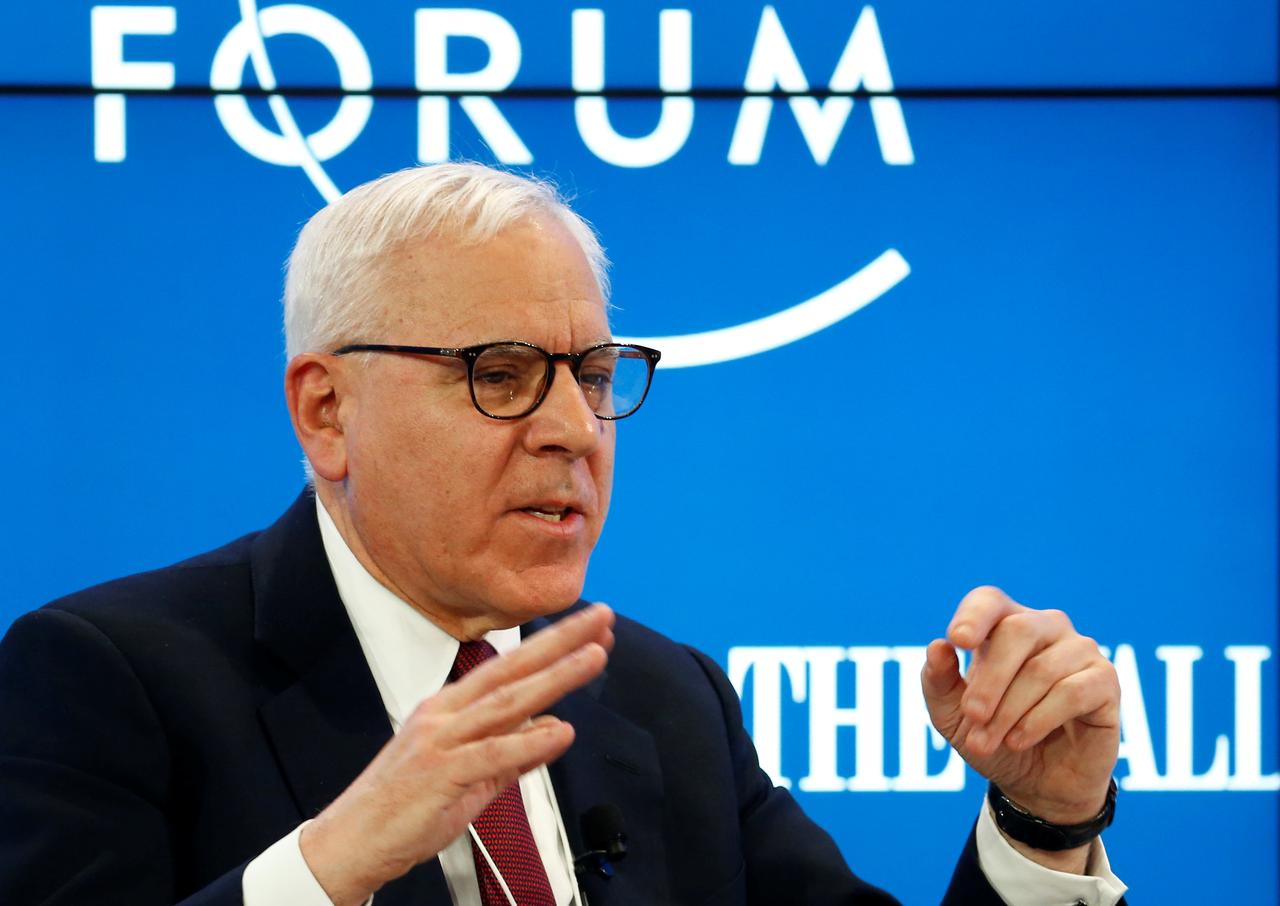Fears about the future of energy assets have led to a sell-off, but this has created “very good opportunities” for the Carlyle Group, its founder, David Rubenstein, said on Thursday.

Rubenstein, co-executive chairman of the private equity (PE) giant, told the Reuters Global Markets Forum that securing bank loans for such deals had become harder, however.
Big investors are rewarding companies with progressive climate policies and dumping heavy polluters, as climate change gains importance on the investment agenda.
Rubenstein said he was “very bullish” on renewables and added that investors entering established PE funds today can expect mid-teen percentage rates of return through over the fund life-cycle.
Below are excerpts from the interview, conducted on the sidelines of the World Economic Forum’s annual meeting in Davos, Switzerland:
Question (Q) – You’ve acquired a great deal of expertise across industry segments such as energy, financial services, manufacturing. Which of these look more appealing to you from an investment point of view now and why?
Answer (A) – Right now, energy is relatively cheap and therefore we are looking at lot of assets where there has been a sell-off in the value, in part because people are nervous about the future of carbon energy. So we still think there are very good opportunities there.
In renewables, there’s no doubt in your lifetime – probably not mine – renewables will probably be dramatically bigger than they are today and we have an opportunity there for people to invest with us. We’re very bullish on renewables right now.
Q – Some people see conditions in parts of the credit market (leveraged loans, BBB-rated debt) worsening. Do you feel there are risks to how PE firms fund their deals, especially in the energy space with credit spreads widening?
A – There’s no doubt that getting energy loans is more challenging than it was before. Lenders are worried about it.
I think the biggest issue with respect to credit is this – when we do go into a down cycle and some deals don’t work out, government regulators always like to come in and say, “What can I do to make this better or ‘how can I help you this morning’” kind of thing?
So, I think that it’s possible that some regulators may say, the debt lending is by the private equity firms themselves, their private credit businesses and not just private equity firms, but hedge funds and so forth, it’s not really regulated.
And so, there may be a look at some point to sort of try to see whether that part of the financial services world should be regulated.
Q – What sort of return on capital do you see money entering PE today earning over the fund life-cycle i.e. 7-10 years?
A – I’d say generally people should expect mid-teen rates of return through good and bad times.
So I would say as an average, if you go into a mature, good, well-run private equity fund – not taking undue risks – I think something like 15% net is realistic and I think it’s satisfactory to investors.
[contextly_sidebar id=”GgPdm7pLbqBD4KtLkogWZdal3pEegIEJ”]





